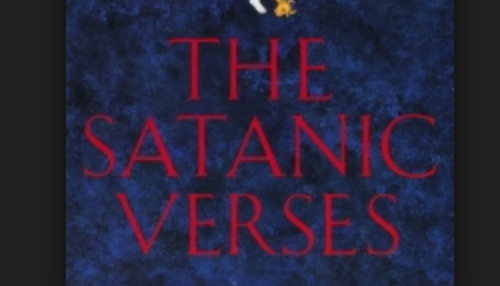A few recent stories have highlighted the dangers to free speech posed by an anxiety to spare people offence or distress. Mesquito has sent in a very good article from the LA Times by Jonathan Turley, ‘Free Speech under Fire’.It opens with an accurate summary of the Zombie Mohammed case:
But while the ruling certainly doesn’t suggest that an American caliphate has gained a foothold in American courts, it was nevertheless part of a disturbing trend. The conflict in Cumberland County between free speech and religious rights is being played out in courts around the world, and free speech is losing.
The author continues:
To put it simply, Western nations appear to have fallen out of love with free speech and are criminalizing more and more kinds of speech through the passage of laws banning hate speech, blasphemy and discriminatory language. Ironically, these laws are defended as fighting for tolerance and pluralism.
After the lethal riots over Dutch cartoons in 2005 satirizing Muhammad, various Western countries have joined Middle Eastern countries in charging people with insulting religion. And prosecutions are now moving beyond anti-religious speech to anti-homosexual or even anti-historical statements.
It is, obviously, easier to stand up for freedom of speech when you like what is being said. But although asserting that homosexuality is a sin or denying genocides (two examples discussed by Turley) may be unwelcome uses of free speech, people should still be allowed to express those views.
Recently Cameron signed up to legislation which targets sexual harassment, and includes outlawing anything which creates an “intimidating, hostile, degrading, humiliating or offensive environment.” Some have asserted that this might make wolf whistling or banter illegal, although Cameron has insisted that such fears are misplaced.
Another recent case seems to suggest a further worrying erosion of free expression. Hope not Hate reports that a man from Gainsborough has been given a one year prison sentence for displaying posters critical of Islam. It is claimed that he ‘plastered his front window with vile anti-Islamic hate literature’:
Many were offensive – attacking both the prophet Mohammed and the Muslim religion. …
Judge Michael Heath told Conway: “To describe the material you put in your window as grossly offensive is an understatement.
“There is no place in a civilised society for conduct of that sort and the only sentence I can justify for it is an immediate custodial sentence.” …
“The majority of the displayed posters and images were undoubtedly offensive to the Islamic faith.”
Now – I’m sure they were very unpleasant, and that Conway is not a nice man. But – and I haven’t tracked down further information about the precise nature of the posters – it seems alarming that someone can receive such a substantial sentence for criticising an idea.
Going back to the article Mesquito sent in, I started making links between the Gainsborough case and Turley’s account of a new law in Tennessee:
Legislators in the United States have shown the same taste for speech prosecutions. In June, Tennessee legislators passed a law making it a crime to “transmit or display an image” online that is likely to “frighten, intimidate or cause emotional distress” to someone who sees it. The law leaves free speech dependent not only on the changing attitudes of what constitutes a disturbing image but whether others believe it was sent for a “legitimate purpose.” This applies even to postings on Facebook or social media.
Who decides what is offensive? Would I get prosecuted for posting a Jesus and Mo cartoon on Harry’s Place, for example? I don’t like Latuff’s Zionazi cartoons – but I don’t think those who display them should be criminalised. I suspect most of my children’s Facebook-addicted and thoughtless friends would fall foul of this law too. I’ll end by quoting Jonathan Turley’s own excellent closing remarks.
The exchange between the judge and the atheist in Mechanicsburg captures the struggle that has existed between free speech and religion for ages. What is different is that it is now a struggle being waged on different terms. Where governments once punished to achieve obedience, they now punish to achieve tolerance. As free speech recedes in the West, it is not sharia but silence that is following in its wake.
hat tip: mesquito


